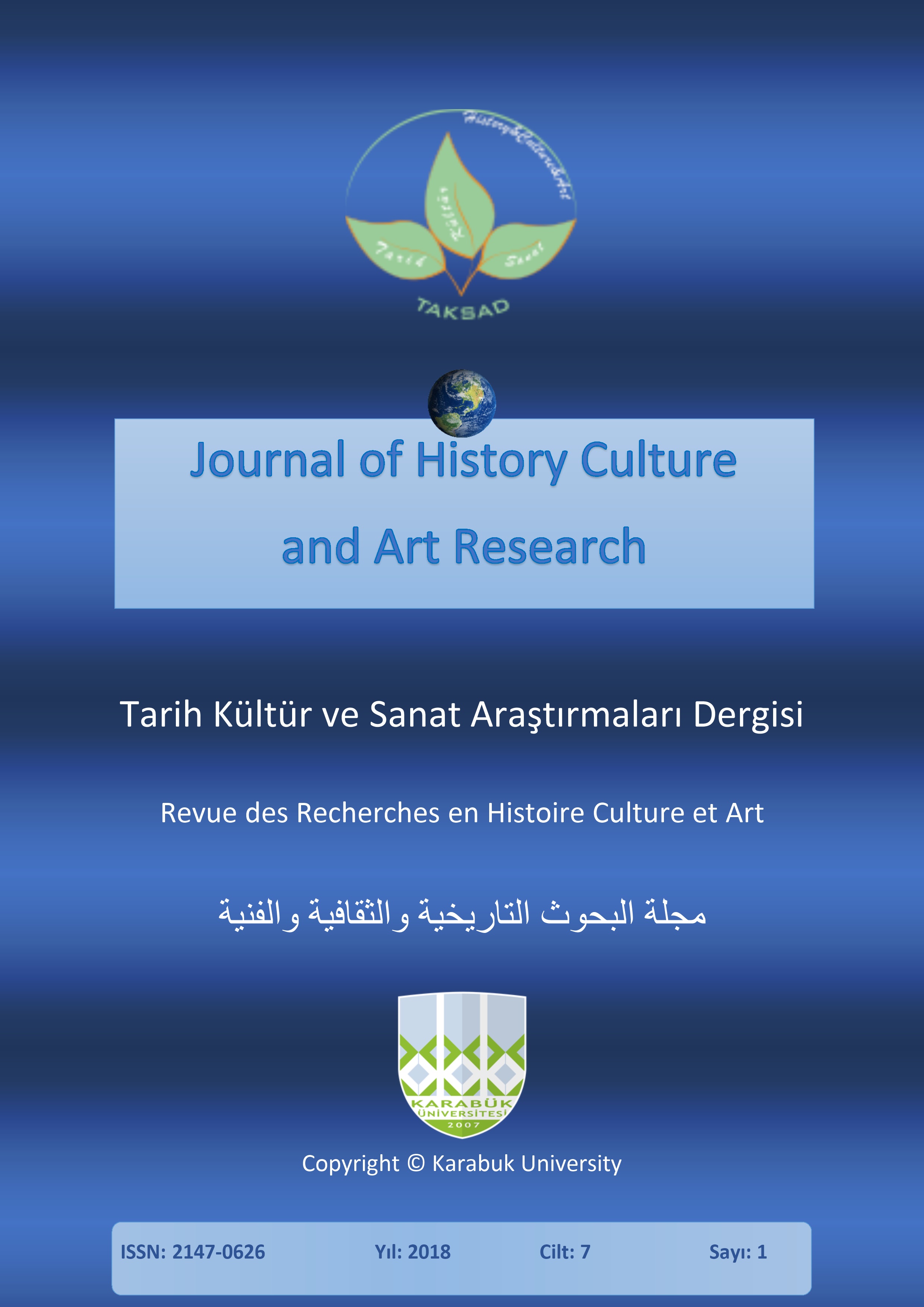The Category of Evaluation in Barack Obama’s Election Discourse: An Empirical Account
DOI:
https://doi.org/10.7596/taksad.v7i1.1463Keywords:
Evaluation, Political discourse, Election discourse, Attitude, Affect, Judgment, Appreciation.Abstract
The purpose of the present piece of research is concerned with functional peculiarities identification of the category of evaluation as manifested in the Barack Obama election discourse. Present-day linguistics emphasizes the importance of such studies whose findings could be applicable not only in the process of linguistic analysis proper, but also in the related spheres of knowledge such as political science, political rhetoric, etc. Furthermore, taking into account the innate ability of a human-being to perform the so-called evaluative reasoning, it seems topical to consider how this reasoning is reflected in the political discourse of key political figures. Evaluation is treated as a heterogeneous phenomenon typical of human cognition and psychology. Evaluation constructs the ideological basis of a discourse as well as builds and maintains relationships between interactants. Evaluation in discourse is realized within three interacting domains of attitude, engagement, and graduation. The first one (attitude) is seen as of special interest within the scope of the present investigation.
References
Arutyunova, N. D. (1988). Types of Linguistic Meanings: Evaluation, Event, Fact. Moscow.
Chilton, P. & Schaeffner, C. (1997). Discourse and Politics. In: T.A. van Dijk (Ed.). Discourse as Social Interaction, (pp.206-230). London: Sage.
Fairclough, N. (1989). Language and Power. London: Longman.
Gaykova, O. V. (2003). Election Discourse as a Genre of Political Communication (Exemplified by the English Language Data): Dissertation, Volgograd.
Golubeva, T. M. (2009). Linguistic Manipulation in Election Discourse (Exemplified by the American Variant of the English Language): Thesis Abstract. N. Novgorod.
Halliday, M. (1994) An Introduction to Functional Grammar, (2nd ed.). London: Edward Arnold.
Ivin, A. A. (1970). Foundations of the Logic of Evaluation. Moscow.
Khidekel, S. S. & Koshel, G. G. (1981). An Evaluative Component of the Word Lexical Meaning. Foreign Languages at School, 4, 7-10.
Martin, J. R. & White, P. R. (2005). The Language of Evaluation. Appraisal in English. Palgrave Macmillan.
Matveyeva, A. A. (2012). Evaluation-related Parameters of the Linguocultural Category of “one’s own – someone else’s” in the English Language: Monograph. Ufa.
Mironova, N. N. (1997). Evaluative Discourse: Semantic Analysis Problems. Proceedings of the Academy of Sciences, 56(4), 52-59.
Muryasov, R. Z.; Samigullina, A. S. & Fedorova, A. L. (2004). On Evaluative Utterance Analysis. Problems of Linguistics, 5, 68-78.
Sergeyeva, L. A. (2003). Evaluative Semantics Problems. Moscow.
Sergeyeva, L. A. (2004). Evaluative Meaning and Categorisation of Evaluative Semantics: Interpretational Analysis (Exemplified by the Russian Language Data): Doctoral Thesis. Ufa.
Sternin, I. A. (1979). Problems of the Word Meaning Analysis. Voronezh.
Teliya, V. N. (1986). A Connotational Aspect of the Nominative Units Semantics. Moscow.
Vasilyev, L. M. (1996). The Semantic Category of Evaluation and Evaluative Predicates. Semantic Research: Semantic Categories in the Russian Language, (pp.55-62). Ufa.
Volf, E. M. (1978). The Grammar and Semantics of the Adjective (Exemplified by ibero-romance languages). Moscow.
Volf, E. M. (1981). On Correlation of Qualificative and Descriptive Structures in the Word and Utterance Semantics. Proceedings of the Academy of Sciences of the USSR, 40(4), 391-397.
Volf, E. M. (2006). The Functional Semantics of Evaluation. Moscow.
Downloads
Published
How to Cite
Issue
Section
License
All papers licensed under Creative Commons 4.0 CC-BY.- Share — copy and redistribute the material in any medium or format
- Adapt — remix, transform, and build upon the material for any purpose, even commercially.
Under the following terms:
Attribution — You must give appropriate credit, provide a link to the license, and indicate if changes were made. You may do so in any reasonable manner, but not in any way that suggests the licensor endorses you or your use.
- No additional restrictions — You may not apply legal terms or technological measures that legally restrict others from doing anything the license permits.







